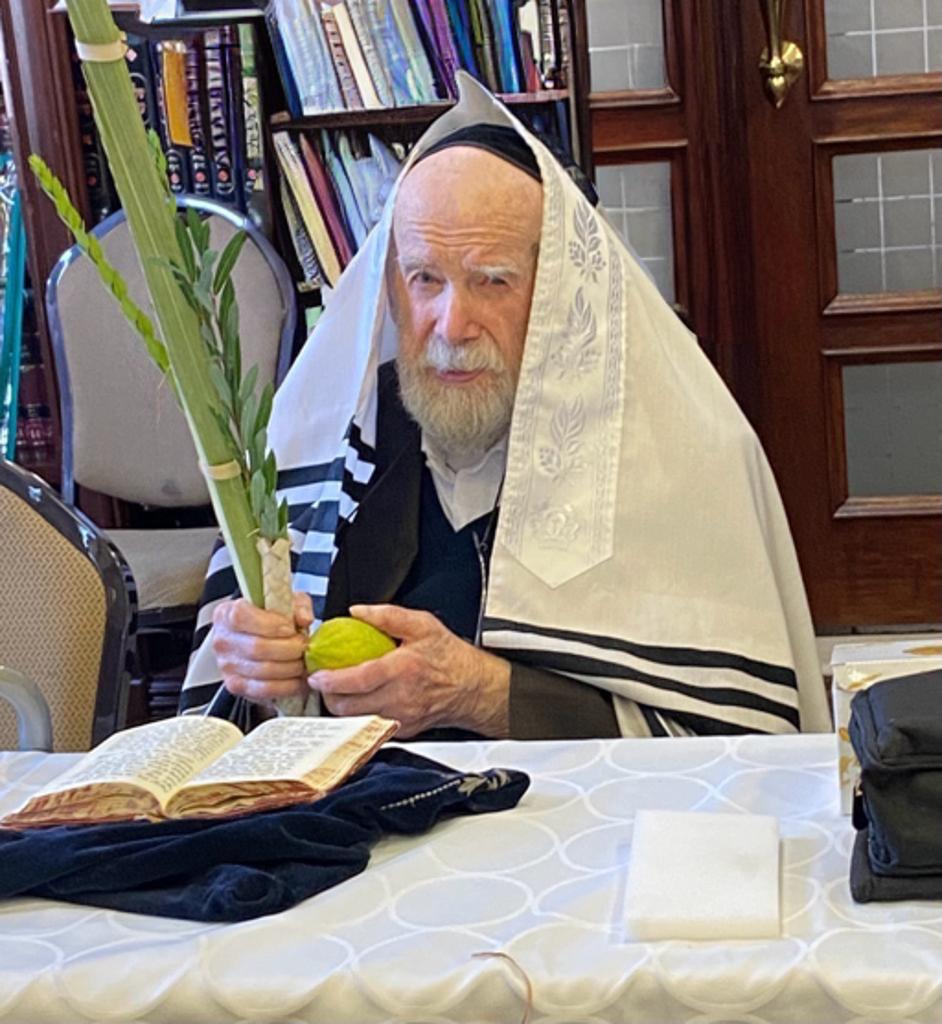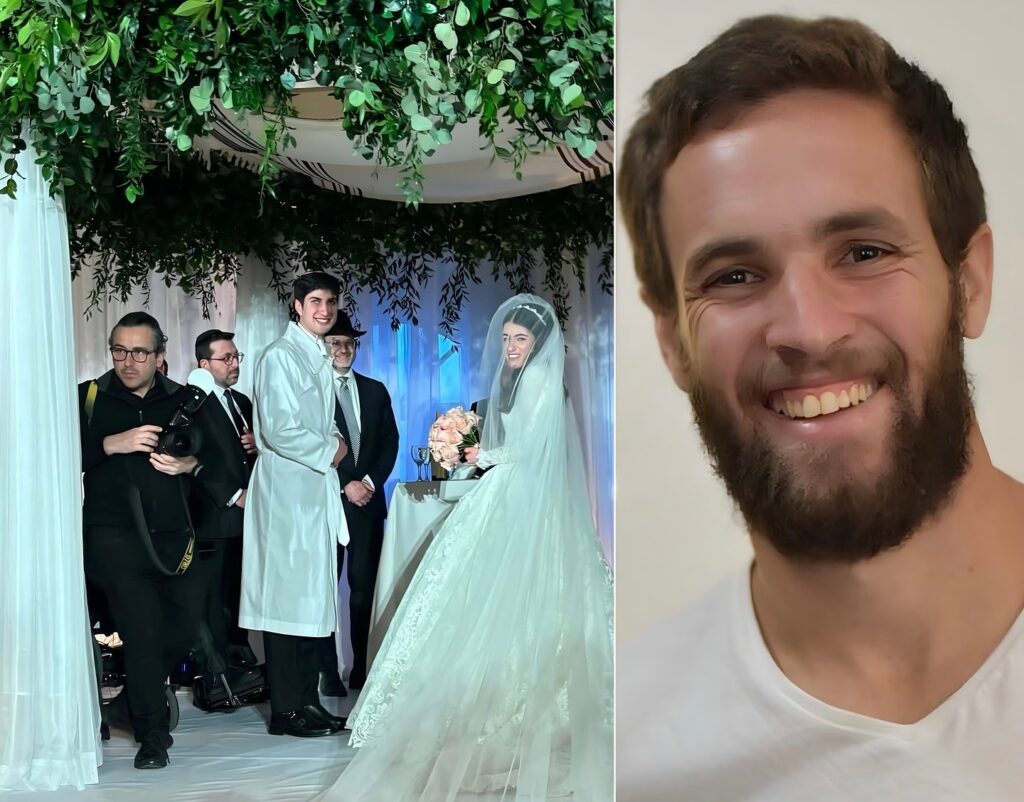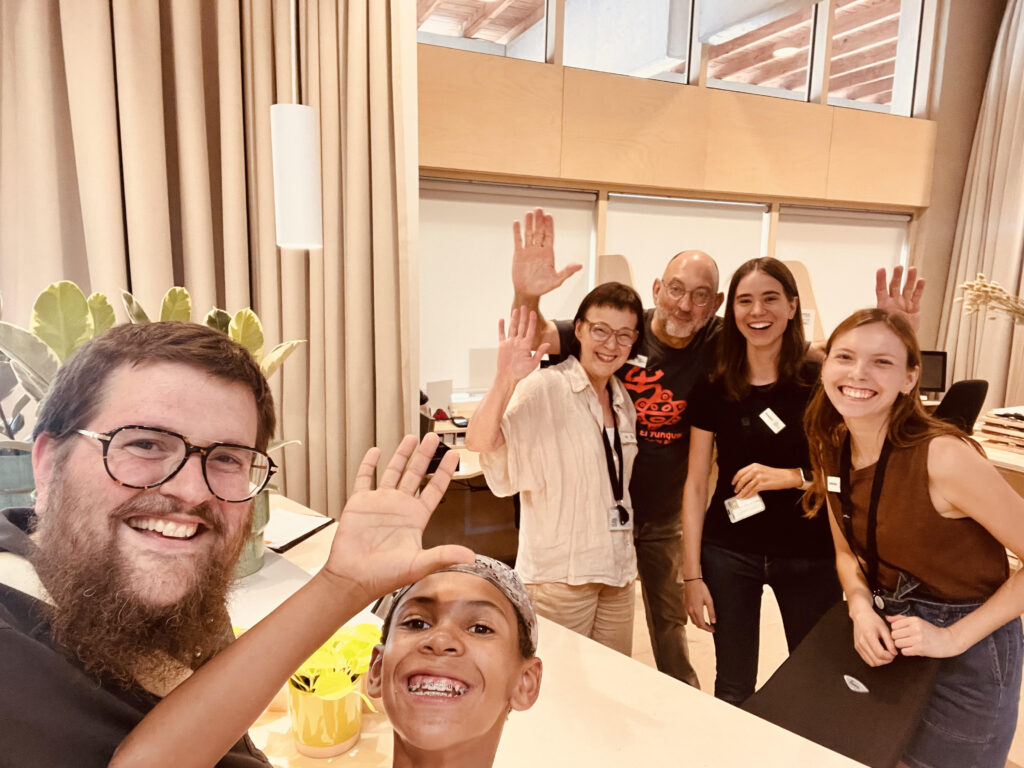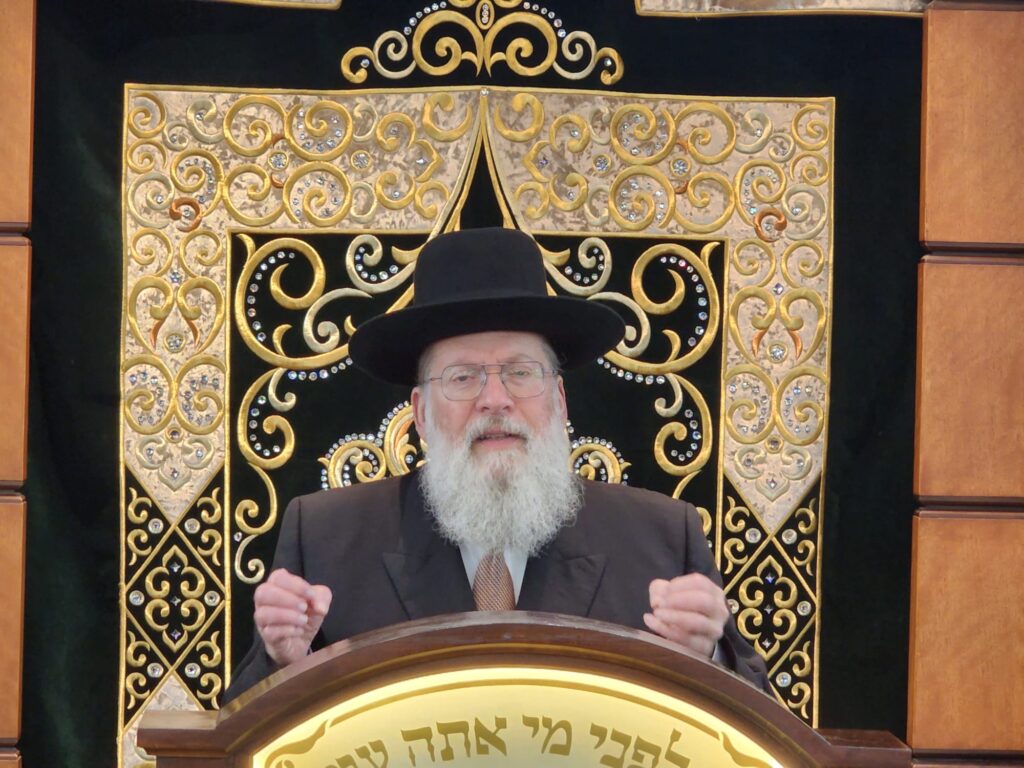Remembering Reb Yitzchok Mordechai Halevi (Itche) Fink: A Boro Park Legend Passes At 104
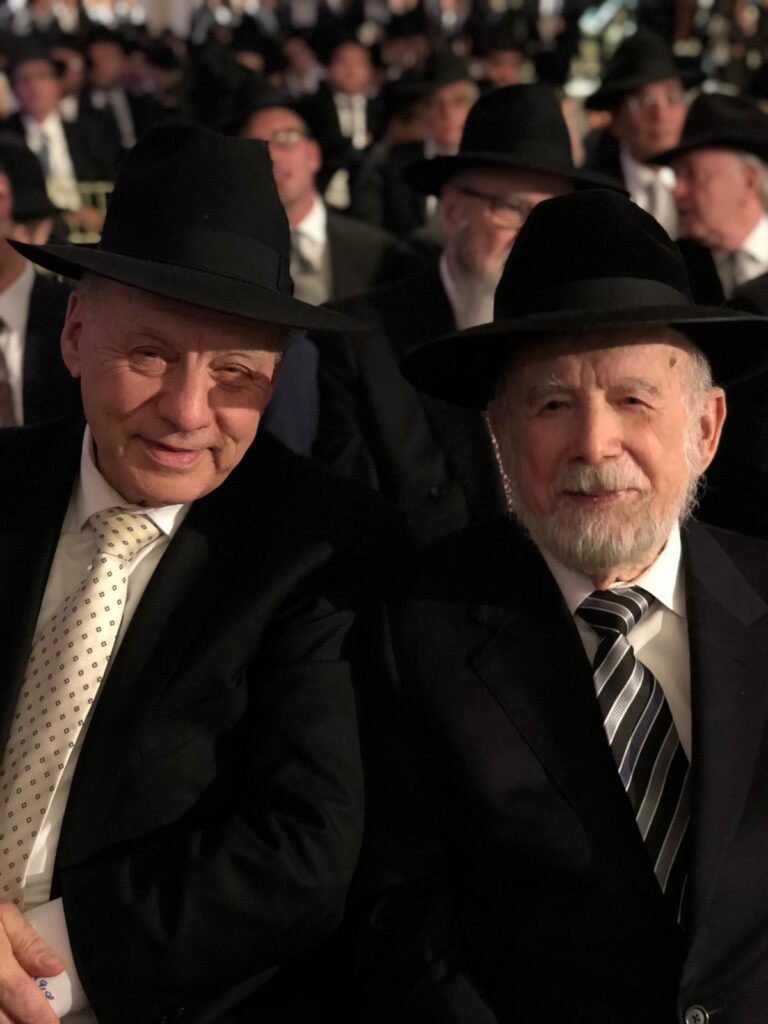
Zeidy at simcha
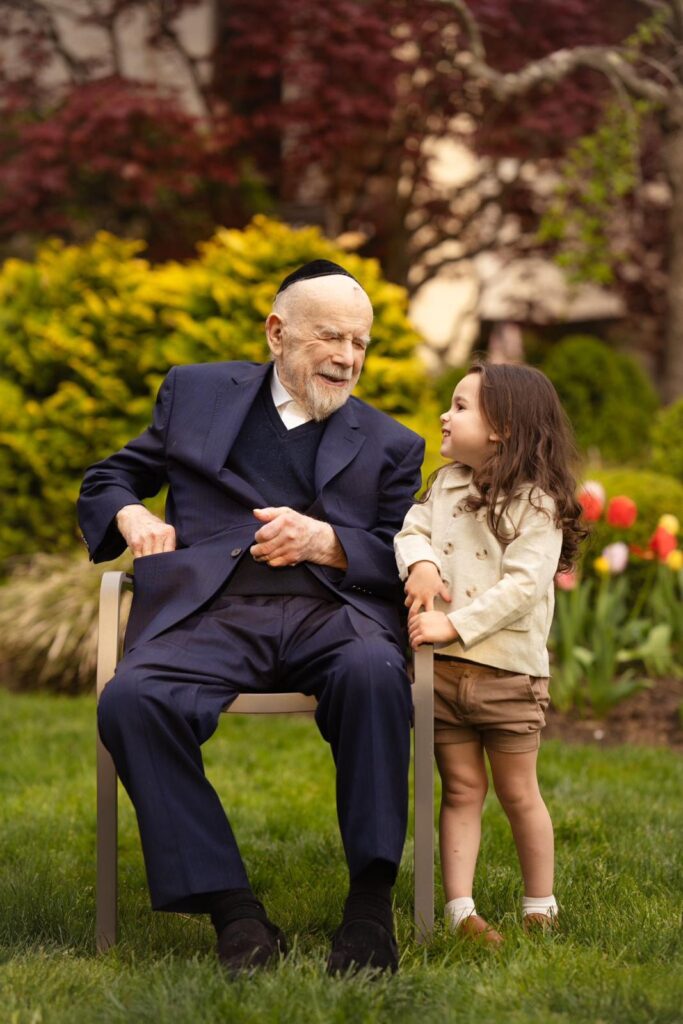
Reb Yitzchok Mordechai Fink passed away at the age of 104
Remembering Reb Yitzchok Mordechai Halevi (Itche) Fink: A Boro Park Legend Passes At 104
By Menachem Lubinsky
It was the fifth night of Chanukah at the home of my shver, Reb Yitzchok Mordechai Halevi Fink, on 49th Street in Boro Park. I had lit Chanukah licht with him the previous four nights, which included my oldest daughter, her husband, Tzvi Fettman, and family. Reb Itche, as we lovingly called him, even participated in the singing of Maoz Tzur. On the fifth night, my youngest daughter, Tzviya, her husband Shragy Faskowitz, and their children came to light the menorah with their Zaidy Fink. That night, as was typical, Zaidy Fink acknowledged his grandchildren and great-grandchildren remarkably by name. It was for all practical purposes a routine night for my 104-year-old father-in-law. When the Faskowitz entourage bid him farewell, he responded with “I’ll see you by Moshiach.” Hours later, Reb Itche returned his holy neshamah to Shamayim, passing away peacefully in his sleep.
My daughter thought nothing of the strange farewell and only later realized that it was indeed a goodbye to this world from a truly extraordinary Yid. A day earlier on Shabbos, he was holding court with several scores of people who would routinely visit him every Shabbos to get a berachah and to hear tales from “der alter Heim.” My mechutan, Chaim Brachfeld, (father of Yossi, husband of my second daughter Meiri) was one of the regulars who would not accept a thank you from me for his weekly visits, even in inclement weather. Instead, he would say, “I thank you for the chizuk and inspiration I receive with every visit.”
In “The Story of Survival,” Reb Itche’s memoir, he recounted his childhood in the Galician town of Sanok (Sunik), his miraculous escape from Poland, and his incredible journey of survival at every turn. Sanok, which was home to approximately 1,200 Jewish families before the Churban, was also where the legendary Harav Meir Shapiro, founder of the Daf Yomi (and later Yeshivas Chachmei Lublin), was rav. Reb Itche described life there as idyllic and extremely pious, and the basis for his pleasant memories of childhood. His father, Reb Eliyahu Zvi, was a Belzer Chasid and his mother, Hindy, was from the prominent Rauch family. “They were intelligent, good natured, and good looking,” wrote Reb Itche. His father wore a shtreimel and his mother, a sheitel.
Later in life, Reb Itche was able to recall every nook and cranny in Sanok, so much so that he made news several weeks before his petirah. The Suniker Rav, Harav Friedman, was buried in the cemetery of the town, but his children and grandchildren could not find the gravesite, even after spending a significant sum of money to search for the exact location. In an almost final desperate attempt, they visited Reb Itche, who proceeded to tell them, “Of course I remember where your grandfather is buried.” He then proceeded to draw a map of the cemetery, pinpointing the exact location of where the excavation should take place. Skeptical but confident, the Friedmans followed his instructions and located the matzeivah. Quite remarkable for his advanced age, testimony of his sharp mind and unfathomable memory, which he showed off time and time again with visitors, recalling the names of their parents and grandparents, a feat that we of the younger generation could only marvel at.
In his memoirs, he vividly describes the “hashgachah pratis” that he encountered at every step of his incredible journey. It began with his miraculous escape from the clutches of the Nazi murderers, which would have resulted in his certain death, to salvation in Siberia, where he was reunited with his revered older brother Chaim. From there it was on to Kazakhstan, which was fortuitous since it was there that he met the Klapper family and eventually married their only daughter, Toby. There were several more stops along the way, including Kyrgyzstan and Dzhambul. On December 17, 1947, he married Toby in the Bad Nauheim Displaced Persons Camp. Each part of his journey entailed a remarkable escape from harm’s way.
In 1948, the Finks gave birth to my late brother-in-law, Dr. Leibel Fink, a’h. In 1949, they joined Reb Shlomo and Machla Klapper, who had emigrated to the United States earlier.
Reb Itche was a paragon of kibud av v’eim, something he displayed even while being on the run during the war. He recalled in great detail how he feared for his parents’ welfare in the middle of the war, and had sought to somehow return to Poland to check on their welfare. He wrote, “I managed to contact my parents through professional, though illegal, couriers that still operated at that stage of the war. The answer that came back was an unequivocal ‘Stay put where you are!’ He never did see his parents again as their fate was sealed along with the other Jews who remained in Poland.”
In Brooklyn Reb Itche and his shver owned and operated the famed Fink Press on 16th Avenue. He was a hard worker, often staying up nights and catnapped in the shop to assure he would meet deadlines. The Faltishaner Rebbe, Grand Rabbi Shulem Meir Twersky, whose house and beis midrash was directly across the street from Reb Itch, vividly described how in the earlier days of printing, the father-in-law and son-in-law worked together with utmost respect for each other.
The Rebbe recalled that back during the age of hot type, if someone ordered a wedding invitation, it had to be set by hand, which Reb Shlomo would do and then board a subway to Manhattan to have a proof made, then he raced back to Boro Park for the client’s approval. Often, this procedure was repeated numerous times until the customer was completely satisfied. Sometimes frustrated, Reb Itche never raised his voice, which was his motto throughout his life.
In addition to being a printer, Reb Itche was also a founding member and early gabbai of the Agudas Yisroel of 14th Avenue and one of Boro Park’s most distinguished citizens. Reb Itche was a talmid chacham of note, adopting the Daf Yomi when it was not yet popular and fashionable. Similarly, his shver Reb Shlomo was a tremendous scholar, having mastered Masechet Yevamos by heart. He had the distinction that he studied with the legendary Harav Meir Shapiro before he opened the Yeshiva Chachmei Lublin. Reb Itche was a regular member of the Daf Yomi shiur given by the late Rav Simcha Elberg. He was friends with the likes of Rav Moshe Sherer and HaRav Avrohom Karp.
Unfortunately, tragedy did not escape Reb Itche as he sadly lost his chashuve son, Dr. Leibel Fink, a’h, nearly 25 years ago and more recently, his younger son Eli to Covid. When asked how he dealt with the untimely demise of his two sons, he would refer to Aharon HaKohen’s reaction to the loss of his two sons, “Vayidom Aharon” (and Aaron was silent), a reference to Aaron’s strong faith and belief that this was the will of the Ribbono shel Olam.
Realizing the treasure that Reb Itche was, my wife Hindy, who was his daughter, worked tirelessly to assure his comfort, including teaming up with our two daughters to manage his meals, especially after his precious wife Toby passed away more than three years ago. All three of my daughters and their wonderful husbands and families, hosted their Zaidy with great kavod on yomim tovim. He was zocheh to five generations of nachas from the Lubinsky and Fink families, who surrounded him with love and frequent visits.
Zaidy Fink was not only a treasure for the family who loved him so dearly, but for the entire community and his customers, who knew how special he was and will never forget his righteousness and integrity. And of course, Hashem, who blessed him with long life and much nachas. Yehi Zichro baruch! n





